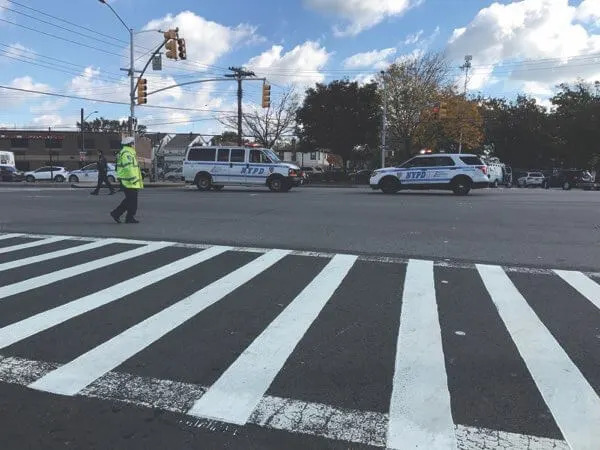By Nathaniel Berke
Senator Charles Schumer thinks New York’s health care system is in need of treatment. The ailment is a severe case of acute economic crisis, and it is a result of its own success. Due to a “remarkably successful” system, people are now living longer than they did decades ago, he said in a speech at New York Methodist Hospital, 506 Sixth Street. The costs involved in extending life are rising with widespread demand and causing a “fundamental problem” in health care: hemorrhaging budgets. “The combination [of living longer and high costs] means it is getting harder and harder to maintain the expense of the system even though it’s one we all want,” he said. State hospitals have lost $2.4 billion since 1998, and 12 hospitals in New York City alone have closed in the last ten years. This Monday, Sen. Schumer announced that Congress approved legislation to stop the Bush administration from enacting Medicaid reforms that would cost New York State hospitals up to $750 million. Preserving the current Medicaid legislation is important to protect equal health care access for all New York residents regardless of economic status. Sen. Schumer argues that expenses are being driven through the roof in part because everyone wants to live longer, and also because hospitals need to provide equal treatment to those who cannot afford it. “No one is willing to say, ‘If you are poor, you are not entitled to health care,’” he said in his speech. Sen. Schumer predicted that health care, along with terrorism and education, would be the issues shaping politics in the years to come. “We are going to have big changes in health care,” Schumer said. According to the senator, 45 million people in the nation are uninsured, and another 70 million are unhappy with their coverage. As we live longer, that number is going to increase. Eventually, “something’s got to give,” Schumer said. Such health care issues are already shaping political discourse in New York. Sen. Schumer’s address came on the heels of a state panel’s controversial recommendations to cut back the services of several state hospitals and merge or close others as a step to reduce budget losses. Several Brooklyn hospitals will be affected by the proposal, including Park Slope’s New York Methodist where Sen. Schumer delivered his speech, the third annual Joseph Silver Memorial Lecture on Health Care in the United States. According to the recommendations of the Berger Commission – as the panel is known — Methodist Hospital will merge with New York Community Hospital in Midwood. Meanwhile and Victory Memorial Hospital in Dyker Heights will close. Sen. Schumer declined to comment on the report, saying he was not familiar with the details. Officials at New York Methodist and New York Community hospitals have embraced the panel’s recommendations. Although it will eliminate about 100 beds between the two hospitals, they expect that it will increase their effectiveness in serving the community. They will no longer compete for patients and will eliminate duplicative services. They will also receive a $12.5 million to ease transition. With the saved space and increased finances, plans are underway to begin outpatient (ambulatory) services, which neither hospital currently provides. Methodist Vice President Lyn Hill says it is “too soon to tell” if the merger will lead to any staffing changes. The warm reception at New York Methodist is in stark contrast to that at Victory Memorial. “We are deeply disappointed by the report and are very concerned that these recommendations, if adopted, would have a grave impact on the health care services available to the people of Brooklyn,” said Victory Memorial officials in a statement issued last week. The purpose of closing hospitals is to make nearby hospitals more efficient and financially sound. Duplicative services will be eliminated, and former patients will be relocated so that surrounding hospitals will operate closer to capacity, wasting less money. This has worked in Brooklyn before. When St. Mary’s Hospital closed, nearby Interfaith Hospital, another financially plagued institution, saw a surge of patients. It was able to increase its services, and expects to turn a profit in 2006 for the first time in recent history. However, State Senator Marty Golden, a critic of the report, doubts whether this will happen with Victory Memorial. “In view of the fact that the occupancy rate of Lutheran Medical Center is over 100 percent and the occupancy rate of Maimonides Medical Center is approximately 95 percent, it is very doubtful that those two facilities will be in a position to serve acute medical needs of those who would have been served at Victory Memorial Hospital,” he wrote in a letter to the commission. Even if the panel’s recommendations do slow the financial hemorrhaging in health care, no one expects it to be a long-term solution. During his speech, Schumer acknowledged that policy-makers have not discovered a cure. He ended his 30-minute lecture by asking the more than 100 medical professionals in the room for their input because, as for solutions, “We don’t have a good one.”





























